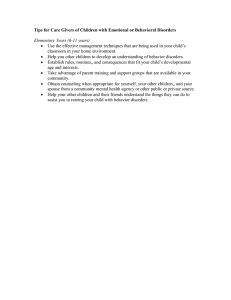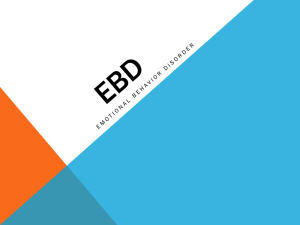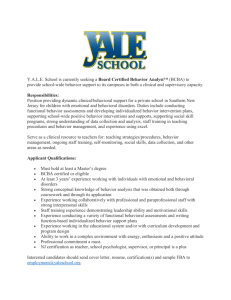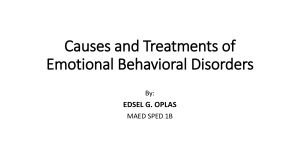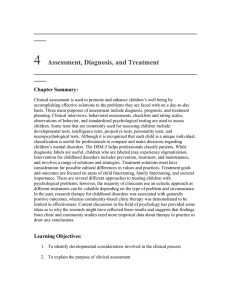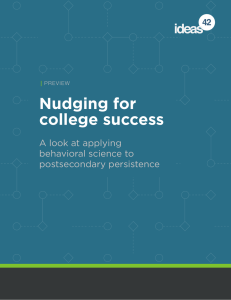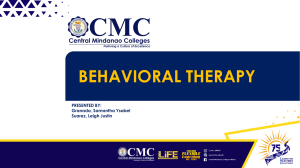Tips for Care Givers of Children with Emotional or Behavioral... Secondary and Transition Years (12-18 years) behavior disorders.
advertisement
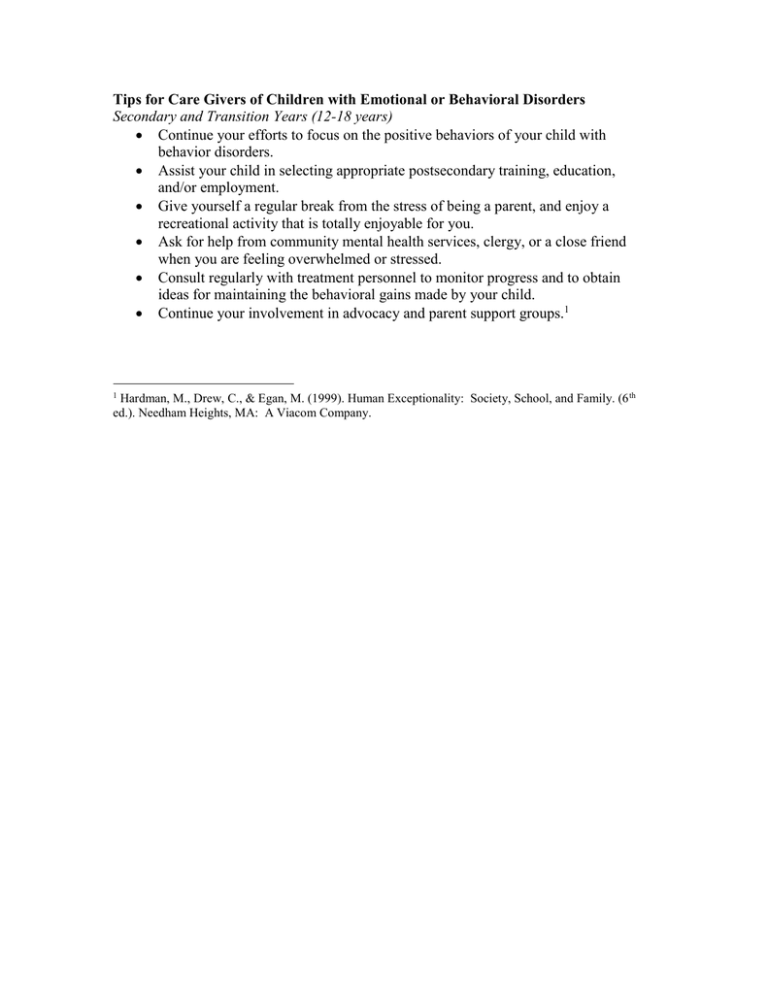
Tips for Care Givers of Children with Emotional or Behavioral Disorders Secondary and Transition Years (12-18 years) Continue your efforts to focus on the positive behaviors of your child with behavior disorders. Assist your child in selecting appropriate postsecondary training, education, and/or employment. Give yourself a regular break from the stress of being a parent, and enjoy a recreational activity that is totally enjoyable for you. Ask for help from community mental health services, clergy, or a close friend when you are feeling overwhelmed or stressed. Consult regularly with treatment personnel to monitor progress and to obtain ideas for maintaining the behavioral gains made by your child. Continue your involvement in advocacy and parent support groups.1 1 Hardman, M., Drew, C., & Egan, M. (1999). Human Exceptionality: Society, School, and Family. (6 th ed.). Needham Heights, MA: A Viacom Company.
